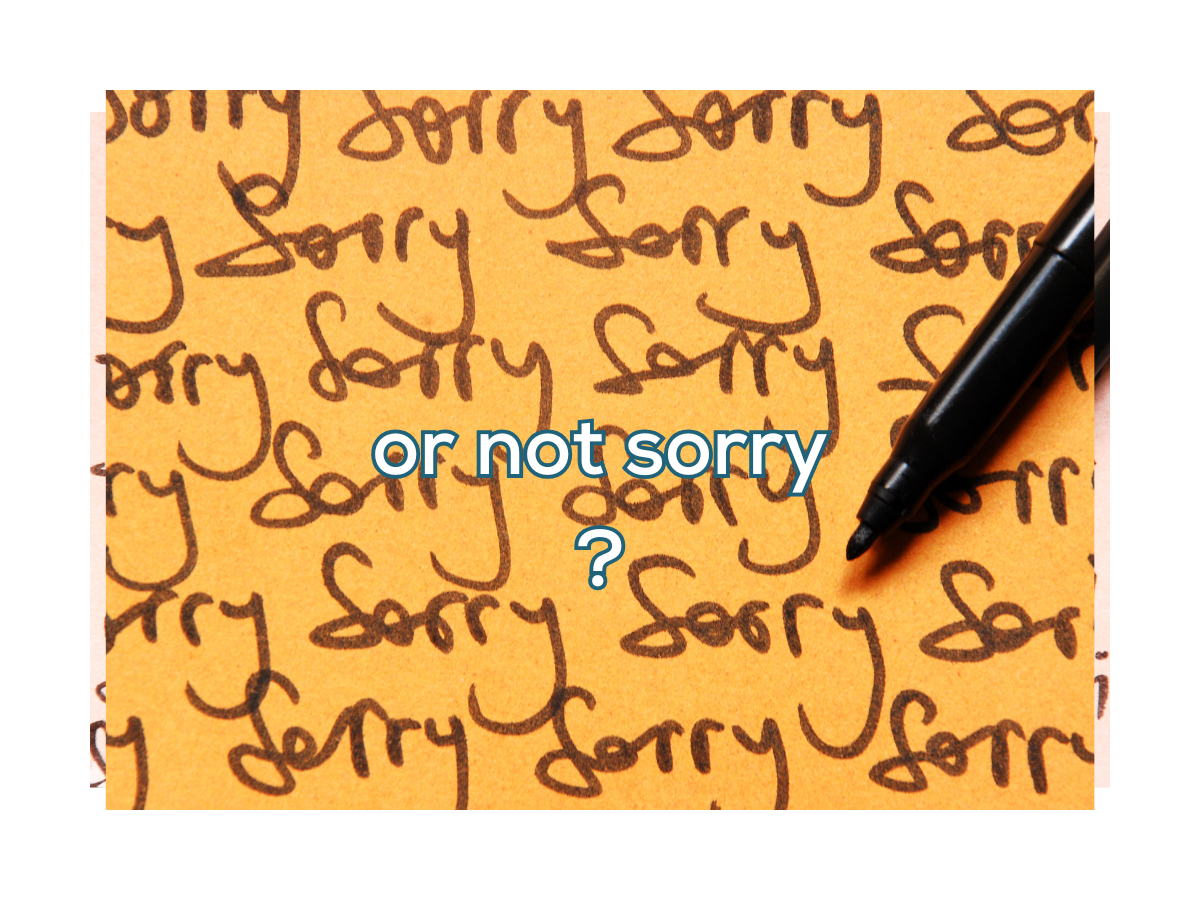
Saying sorry… is it like swearing? Odd comparison; but stay with me and let me know if it works.
If you have ever been around people who insert swear words as fillers, you know what I mean. They don’t seem to use it for effect or emphasis, it’s just a pattern of expressing their frustration and dissatisfaction. At first, it is off-putting to listen to the stream of f*&(*ing this or that. But after a while, you start to tune it out. At first, you wonder why they are so angry, but the repetition leads you to assume they don’t mean anything by it. As if they are not even aware they are saying it.
Just as habitual swearing can become background noise, so too can habitual apologies.
Saying ‘sorry’ repeatedly has the same effect on listeners. You wonder if their expression of regret is authentic or warranted. After a while, it becomes white noise. You don’t care if they are sorry because it gets used so often or in circumstances where it is not warranted.
I have a compulsion to apologize for all kinds of things… when I am late for an event, when I am slow to respond to an email, or canceling a meeting. I have come to believe that apologizing is easily dismissed and often hasvthe opposite effect. Rather than evoking appreciation, it engenders annoyance. Am I really ‘sorry’ or am I using it as a filler word to express awareness of shortcomings?
I’m not prone to swearing, but when I do, it is for emphasis, and it evokes the response I want… that people take notice of the emotional impact of the word. That is what I want my apology to accomplish… impact, not tuning out.
This year my guiding-word is RESET. I am paying attention to the use of ‘I am sorry’ either by me or someone else. Yesterday, I had a client send me a long message apologizing for missing our scheduled meeting. An explanation was warranted, but the lingering emotion of shame and regret attached to the word ‘sorry’ was not. Her circumstances were complicated, she didn’t have the energetic space to meet. I understand.
The emotional energy and time we spend feeling sorry is my point here. We have between 7 and 10 hours at work, we cannot gain more time on the clock, but we can gain productivity by watching how we spend emotional energy. Feeling shame, regret, anger, or frustration sucks our energy and we lose time to do the important stuff.
This is a simple but transformative behaviour change that can drastically redirect your energy so that you end your day with peace of mind. Want more tips and tricks, use the link below to connect with me to learn more.
Productivity Partner Plans
Become EFFECTIVE, EFFICIENT & CONSISTENT
